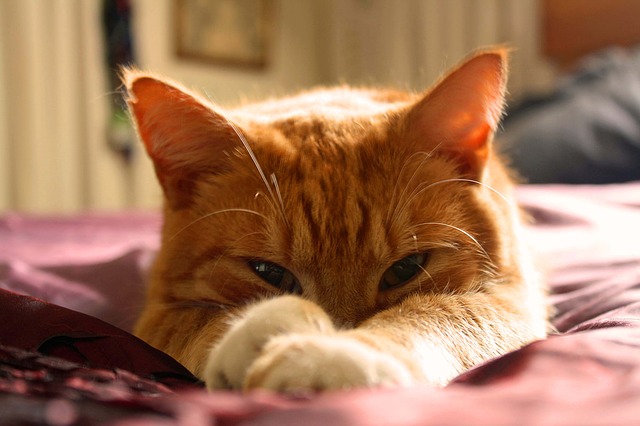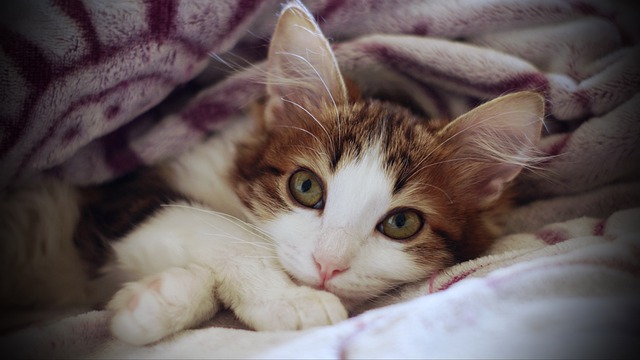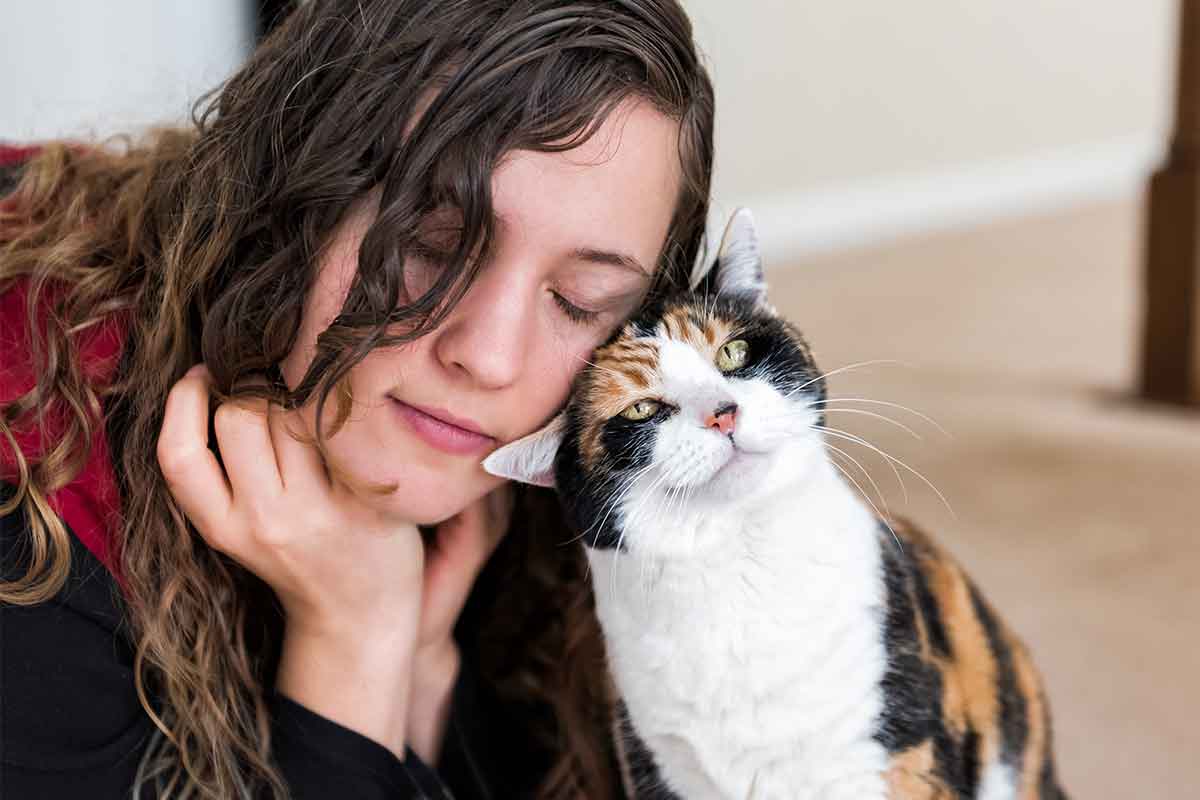Things are breaking apart in your life right now. Perhaps you lost your job, got divorced, or got into an accident. Because of this, you are slowly sinking into depression. You spend every waking hour stressing over the situation. For some reason, your kitty seems to be depressed and anxious – just like you. What is happening? Can she sense your present emotion?
The man-animal bond is a rather special one. Many pet parents don’t know this but cats can read most of our emotions including anxiety and depression. When you are blue and down, your kitty can tell something is up. In this guide, we go over the relationship between how you feel and how it rubs off on your beloved feline friend.
How Do Cats Feel Emotion?
To understand the connection between your emotional state and how it affects your cat, you have to know how cats feel emotions in the first place. Felines process emotions in a totally different way. According to Purina, all mammals, cats included, feel emotions. The difference lies in what emotions mean to every species.
For us, we associate our emotions with something deep about ourselves or our loved ones. However, non-human species use their emotions for survival purposes such as taking care of the young ones or sick pack members, looking for food and addressing intimidation and fear when faced with danger. Cats, for instance, don’t have the ability to feel deep feelings such as love, guilt, shame, and lots of joy. They can only feel basic emotions like happiness and sadness but they rarely go beyond that, well, according to research.
Cats Can Understand More Than You Think

Jennifer Vonk and Moriah Galvan or Oakland University, Michigan sought to find the connection between our emotional gestures and the behavior of our cats. They studied a total of 12 cats alongside their owners for a while. What they noticed is that the kitties behaved a certain way when their owners smiled and differently when the owners frowned. In the latter case, the cats displayed positive behaviors like sitting on the lap, purring, and rubbing against the owners.
Cats also showed more motivation to want to spend more time with their owners when smiles were thrown at them. Oppositely, the kitties went to the ‘dark side” when the owners were frowning. The conclusion was that felines can read our facial expressions. The more time they spend with you, the better they get at the skill.
In yet another study published in PLOS One Journal, researchers found that cats and their owners imitated each other’s behavior and wellbeing. The 3331 cats that participated in the study all proved this point to the letter. The lead author of the study, Lauren Finka, spoke to PsyPost and had this to say,
“Our personalities play a vital role when it comes to how we interact with our feline friends. Ultimately, this has a direct impact on the well-being of the little creatures. Cats may have a hard time playing pets in our homes and our behavior affects them in both negative and positive ways.”
Pet parents who are always happy and joyful end up imparting the same to their cats. This means they end up with healthy kitties and those of good temperaments. On the flipside, people who are antisocial and anxious are more likely to have cats with medical problems especially stress-related kinds. The cats tend to have weight issues and behavioral challenges including fear and aggression.
How Do Cats Read Emotions?

If you are wondering how your kitty can tell when you are anxious and depressed, the answer lies in any of the following ways.
- Facial Expressions: As mentioned before, your cat can pick up your emotions by looking at your facial expressions. If your cat sees that you are happy and smiling, she will purr and act happy around you. Conversely, if she reads sadness and anger, don’t be shocked if she becomes aggressive, fearful, and aggressive.
- The Tone Of Your Voice: Humans are not the only ones that can sense emotion from the tone of voice. Turns out cats can also read your mood the same way. With extremely sensitive ears, these little guys can easily tell when you raise your voice. When you are angry, your cat will run away from you and retreat to a safe place. Else, when you are speaking in your normal tone, she will sense peace and quiet and will come around and hang with you.
- Body Language: When you are anxious, afraid, or tensed, your body language shows it. Not only can your family members tell you are in distress but your adorable kitty can sense it too. Often, your cat will interpret this as fear and will react in a way that assures and calms you down.
Do Cats Respond To Emotions?

Research has shown that cats respond to smiling by moving towards us and frowning by moving away. This is because cats cannot really tell why you are feeling sad and blue. However, they know that there is nothing good they get by being around you in that state. Yes, cats are selfish that way. If there’s something good they get, they will stick around.
That’s why when you are happy and bouncy, they come around. Your kitty knows when you are in a good mood, you will spoil her silly—give treats, pet her, etc. On the opposite side of things, when you are tensed and sad, you have no time for her, so she will move away from you. This is especially true when you are angry. She fears you will yell at her, hit her, or prove to be dangerous around her.
With that said, cats are very intelligent. Over time, they learn how to predict your behavior and what they gain from it. When you are sad and blue, your kitty may snuggle up with you just to lift your mood and most hopefully get her some treats or play with her. She knows that if she can purr at you, give you a few head bumps, and stare straight into your eyes, you will not resist the temptation to reward her. In the end, it’s a win-win situation for both of you. But then again, this doesn’t happen to all cats.
Parting Thoughts
Often referred to as aloof and independent, cats get a bad reputation in the emotions and companionship department. With regards to reading human emotions and giving comfort, dogs often come to mind. However, cats, too, can sense when it going on in your emotional state. They can read your facial gestures, body language, and tone of your voice.
Related Posts:
Why Does My Cat Come to Me When I Cry?

Hi! I am Eleanor Price. I started this website after my cat, Louie, almost died from a case of botulism (a type of food poisoning often caused by bacteria that grow on food items). Turned out that my cat’s diet was the problem. I have made it my duty to provide the best information and recommendations about everything cat lovers need to know about their felines’ health and wellbeing. My goal is to find the most informative content on anything feline-related and share it with fellow hardworking kitty lovers.

